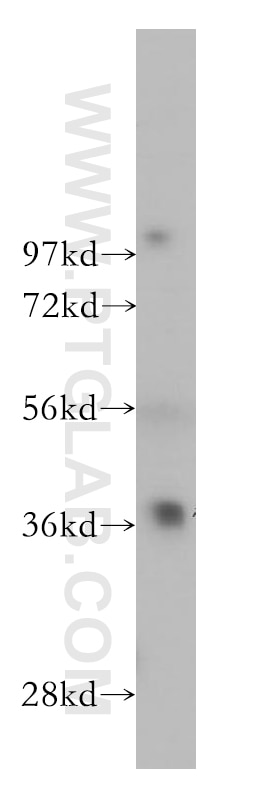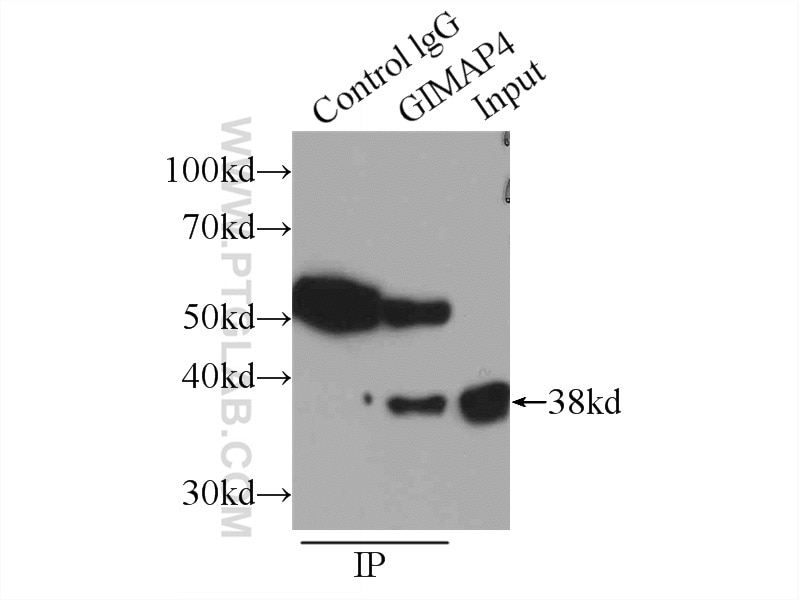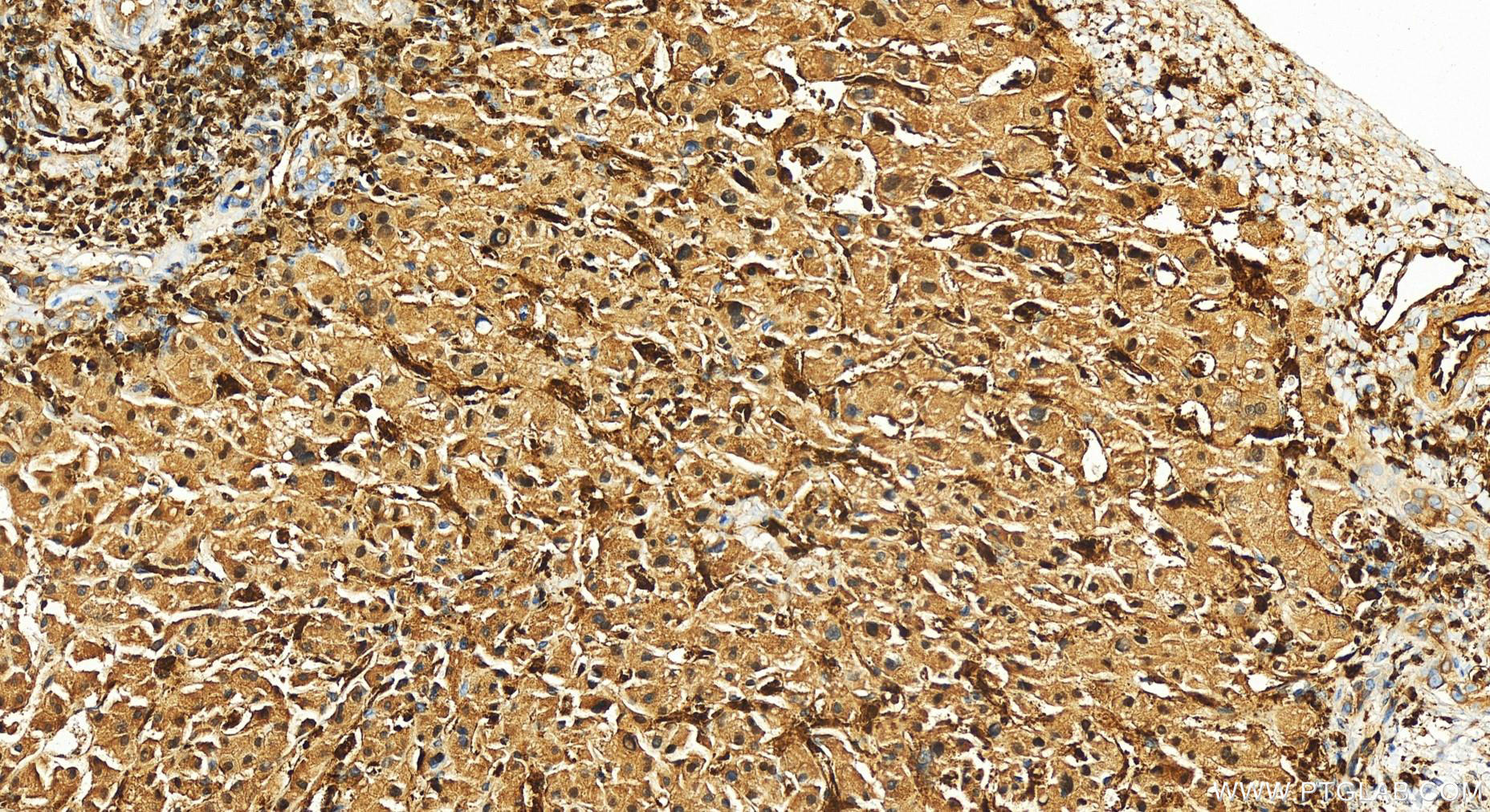Validation Data Gallery
Tested Applications
| Positive WB detected in | Jurkat cells |
| Positive IP detected in | Jurkat cells |
| Positive IHC detected in | human intrahepatic cholangiocarcinoma tissue Note: suggested antigen retrieval with TE buffer pH 9.0; (*) Alternatively, antigen retrieval may be performed with citrate buffer pH 6.0 |
Recommended dilution
| Application | Dilution |
|---|---|
| Western Blot (WB) | WB : 1:500-1:2000 |
| Immunoprecipitation (IP) | IP : 0.5-4.0 ug for 1.0-3.0 mg of total protein lysate |
| Immunohistochemistry (IHC) | IHC : 1:50-1:500 |
| It is recommended that this reagent should be titrated in each testing system to obtain optimal results. | |
| Sample-dependent, Check data in validation data gallery. | |
Product Information
11852-1-AP targets GIMAP4 in WB, IHC, IP, ELISA applications and shows reactivity with human samples.
| Tested Reactivity | human |
| Host / Isotype | Rabbit / IgG |
| Class | Polyclonal |
| Type | Antibody |
| Immunogen |
CatNo: Ag2422 Product name: Recombinant human GIMAP4 protein Source: e coli.-derived, PGEX-4T Tag: GST Domain: 1-329 aa of BC020657 Sequence: MAAQYGSMSFNPSTPGASYGPGRQEPRNSQLRIVLVGKTGAGKSATGNSILGRKVFHSGTAAKSITKKCEKRSSSWKETELVVVDTPGIFDTEVPNAETSKEIIRCILLTSPGPHALLLVVPLGRYTEEEHKATEKILKMFGERARSFMILIFTRKDDLGDTNLHDYLREAPEDIQDLMDIFGDRYCALNNKATGAEQEAQRAQLLGLIQRVVRENKEGCYTNRMYQRAEEEIQKQTQAMQELHRVELEREKARIREEYEEKIRKLEDKVEQEKRKKQMEKKLAEQEAHYAVRQQRARTEVESKDGILELIMTALQIASFILLRLFAED 相同性解析による交差性が予測される生物種 |
| Full Name | GTPase, IMAP family member 4 |
| Calculated molecular weight | 329 aa, 38 kDa |
| Observed molecular weight | 38 kDa |
| GenBank accession number | BC020657 |
| Gene Symbol | GIMAP4 |
| Gene ID (NCBI) | 55303 |
| RRID | AB_2279105 |
| Conjugate | Unconjugated |
| Form | |
| Form | Liquid |
| Purification Method | Antigen affinity purification |
| UNIPROT ID | Q9NUV9 |
| Storage Buffer | PBS with 0.02% sodium azide and 50% glycerol{{ptg:BufferTemp}}7.3 |
| Storage Conditions | Store at -20°C. Stable for one year after shipment. Aliquoting is unnecessary for -20oC storage. |
Background Information
GIMAP4, also named as hIAN1 or HIMAP4, is a member of GIMAP family. Among GIMAP family, GIMAP4 is the only member reported to have true GTPase activity, and its transcription is found to be differentially regulated during early human CD4+ T helper (Th) lymphocyte differentiation. GIMAP4 has been previously connected mainly with T- and B-cell development and survival and T-cell apoptosis. The MW of this protein is 38 kDa, and Catalog#11852-1-AP specially recognises the 38 kDa protein.
Protocols
| Product Specific Protocols | |
|---|---|
| IHC protocol for GIMAP4 antibody 11852-1-AP | Download protocol |
| IP protocol for GIMAP4 antibody 11852-1-AP | Download protocol |
| WB protocol for GIMAP4 antibody 11852-1-AP | Download protocol |
| Standard Protocols | |
|---|---|
| Click here to view our Standard Protocols |



